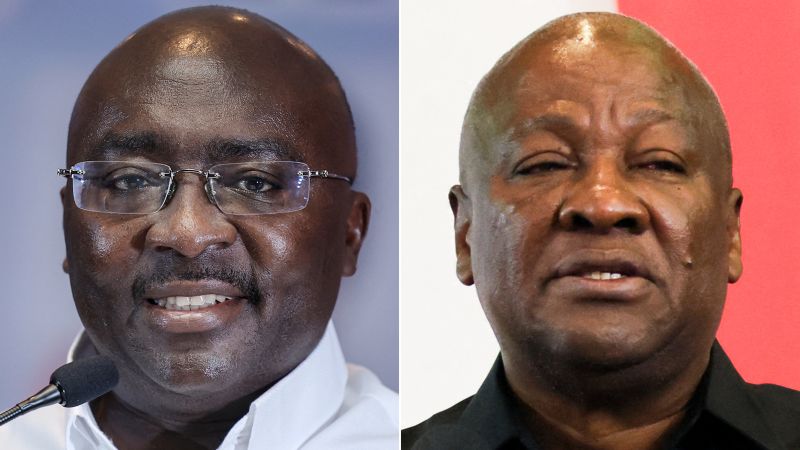In the wake of high-stakes elections in Ghana where a former leader eyes a Trump-like comeback, the political landscape in the country has been electrified with anticipation and intrigue. Ghana, known for its strong democratic traditions in a region often fraught with political instability, is once again at a crossroads as citizens prepare to cast their votes in a crucial election that could shape the future of the nation.
Former Ghanaian President John Dramani Mahama, who served as leader of the country from 2012 to 2017, is seeking to make a political comeback and unseat the incumbent President Nana Akufo-Addo in the upcoming election. Mahama’s bid for the presidency has drawn comparisons to former US President Donald Trump’s unexpected rise to power, with both politicians leveraging a populist appeal and a promise to shake up the political establishment.
The upcoming election in Ghana is seen as a high-stakes contest with far-reaching implications for the country’s future. Ghana has been praised for its stability and democratic governance in a region often plagued by coups and political turmoil. However, recent years have seen growing discontent among Ghanaians over issues such as corruption, economic inequality, and rising youth unemployment. The outcome of this election will determine whether the country continues on its path of democratic consolidation and development or veers towards a more contentious and polarized political environment.
President Nana Akufo-Addo, who assumed office in 2017, is seeking a second term in office and has pointed to his administration’s achievements in areas such as infrastructure development, healthcare, and education. However, his tenure has also been marred by allegations of corruption and criticism over his handling of the economy, particularly in the wake of the COVID-19 pandemic which has hit the country’s economy hard.
John Dramani Mahama, on the other hand, has positioned himself as a champion of the marginalized and a voice for change. During his time in office, Mahama faced criticism for his handling of the economy and alleged corruption scandals but retains a significant base of support, particularly among disaffected youth and opposition groups. His promise to address issues such as unemployment, healthcare access, and economic inequality has struck a chord with voters disillusioned with the status quo.
As Ghanaians prepare to head to the polls, the stakes are high and the political atmosphere is charged with anticipation and uncertainty. The country’s electoral commission has assured citizens of a free and fair election, and international observers will be closely monitoring the process to ensure transparency and integrity. The outcome of this election will not only shape the future of Ghana but will also have broader implications for the region and beyond.
Regardless of the outcome, one thing is certain – Ghanaians are engaged, enthusiastic, and ready to make their voices heard. The democratic spirit that has long defined Ghanaian politics is on full display, as citizens come together to participate in the electoral process and shape the future of their country. As the world watches with bated breath, Ghana stands at a critical juncture, with the hopes and aspirations of its people hanging in the balance.
